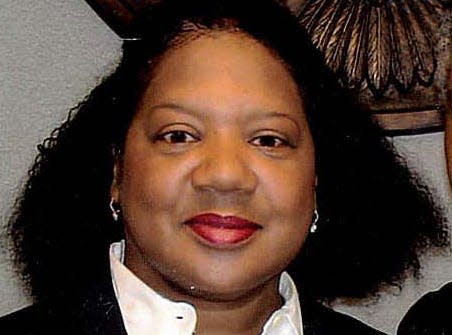ELAINE HARRIS SPEARMAN COMMENTARY: Attorney general seeks to stay in the spotlight

It is challenging, but look around. You will see a great number of people who put forth great effort to be noticed, seen or heard. They do not want to be a footnote in life. They want to convince you that they are still relevant.
Many take to social media. They post irrelevant stories, comments and pictures that are as interesting as watching ice melt. People who want to keep in touch find themselves scrolling for hours with very few tangible results.
Most of the “keep my face and name out there” people have a motive. Sometimes you cannot discern what that motive is. In the case of those who have political ambition, it is readily apparent why there is a need to “keep them talking,” whether relevant or not, and whether it is negative or simply just calling the name.
Once a person has “fed at the public trough,” it is difficult for them to accept what would be considered as a “regular job, leading a regular life.” In your “regular” life, your opinion doesn’t count as much, you get no interviews; you are not called upon to publicly speak, and the taxpayers don’t pay your salary and provide job perks for your being there.
The attorney general of Alabama seems to look at filing or joining lawsuits that keep him in the public eye. Who is he attempting to appease, or impress?
To remind you, according to Black's Law Dictionary (Centennial Edition, 1891-1991), in each state there is an attorney general “who is the chief law officer of the state.” He or she gives advice and opinions to the governor and to executive and administrative departments or agencies.
Two articles have again brought Alabama’s attorney general to the public’s attention, which again begs questions as to his reasons for attempting to stay in the public’s eyesight.
There are two major Alabama cities that are forged in the minds of people across the world. Those two cities, Birmingham and Montgomery, have finally seen changes in mayoral leadership.
We now, in the face of such hard-fought change, have an attorney general who has sent a letter to the mayor of Montgomery, who happens to be African American, advising him that the city must pay a $25,000 fine by Dec. 8, “or otherwise this attorney general will file suit on behalf of the state.”
What? Why? Because Montgomery changed the name of Jeff Davis Avenue to Fred D. Gray Avenue.
Gray, an attorney, grew up on that street and represented many of the men and women who sacrificed to change Montgomery, which was referred to as the “Cradle of the Confederacy.” (Although the city's seal now also bears the label "Birthplace of the Civil Rights Movement.")
He and I both were members of the National Bar Association, which was formed because Black lawyers could not join the American Bar Association. I was elected to the Board of Governors, and had the honor of knowing Fred Gray.
Why would an attorney general choose to fight against recognizing Black achievement in Alabama? This as last month he joined in a Colorado lawsuit over a cake shop owner's refusal to make a cake for a gender transition celebration.
I believe he has so blinded himself with ambition that he has gone far beyond what his duties are, and what he should be concerned about, for all of the residents of Alabama. He needs to refocus.
Most people have heard the phrase “ambulance chasing.” It is a derogatory label used for lawyers who specialize in representing accident victims, and typically refers to attorneys soliciting victims or their families. In the U.S., it violates the American Bar Association Model Rules of Professional Conduct.
So what is the attorney general of Alabama doing?
Elaine Harris Spearman, Esq., a Gadsden native, is the retired legal advisor to the comptroller of the City of St. Louis. The opinions reflected are her own.
This article originally appeared on The Gadsden Times: Alabama's attorney general out of his lane
